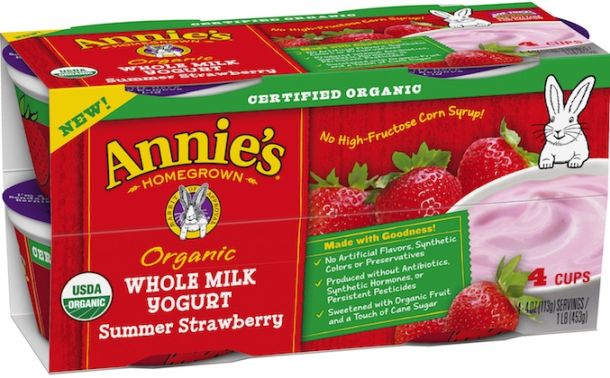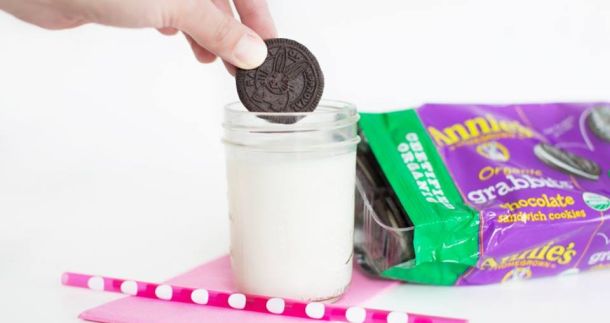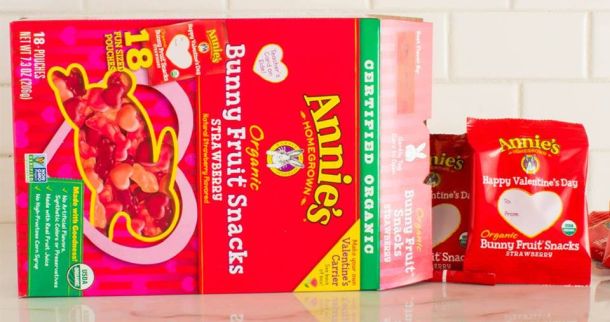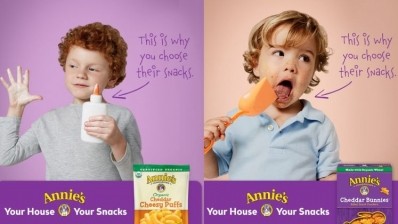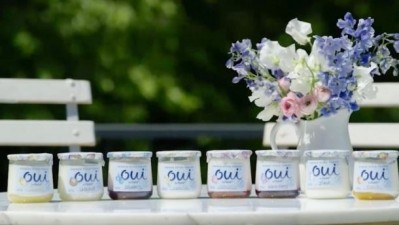Annie's sales set to reach $400m in fiscal 2017, says president
Annie’s president: ‘Over the last two years we’ve added four million new households each year’
Speaking to FoodNavigator-USA at the Natural Products Expo West show in Anaheim, Foraker said: “The business was around $200m [$204m in the year to March 31, 2014] when General Mills acquired us a little over two years ago and will be around $400m this year [year to May 28, 2017], so it’s been pretty dramatic growth.”
Asked what was driving the growth, he said: “It’s been a combination of things, the biggest factors have been increased distribution, getting our products on the mainstream shelf in grocery stores and other accounts, effective merchandising, and also increasing velocities. So we’re seeing really strong promoted velocity increases as well as baseline, which is really healthy, that means we’ve added a lot of households.
“Over the last two years we’ve added four million new households each year."
New categories: Yogurt, cereal, soup, baking mixes, refrigerated dough
Annie's has also expanded into new categories including cereal, yogurt, soup, baking mixes and refrigerated dough, he said.
As for yogurt – a category in which General Mills has recently struggled as its Yoplait brand has lost ground, he said: “We’re pleased with our start but think we can do even better, we have a really strong whole milk offering [under the Annie’s brand] that we need to communicate better and stronger, but Annie’s moms love the product.
“We are doing well in retailers that do well with Annie’s, but we need to make sure that it can grow and expand everywhere.”
Brand equity: What was really important to maintain was the authenticity of the brand
Foraker, who has remained at the helm of Annie's after selling it to General Mills, said Annie’s had integrated manufacturing, sourcing, and sales with the parent company, but had retained control over ingredients standards, branding and messaging.
“Before the acquisition, I sat down with the [General Mills] CEO and the president of the US and we talked about what was really important to maintain was the authenticity of the brand, the real clear, purpose-driven, mission-driven social and environmental causes of the brand, and to remain true to those things and not compromise, and if we did that, consumers would remain loyal to the brand.
“So we kept our HQ in Berkeley - we have a lot of our core team still there - and we have decision rights on the brand for the things you mentioned [ingredients standards, branding and messaging].”
Organic for everybunny?
Right now, a big focus is working with supply chain partners to increase the acreage devoted to organic food production in the US, he said.
“Organic is about 5% of food right now, that’s still quite low, but we think the opportunity is for it to be dramatically bigger, and the way to do that is to get consumers into the brand and into organic and also to make sure that over time we are bringing price premiums down by investing in organic agriculture and our supply chain to be way out ahead.
“General Mills is going to double its organic acres farmed by the end of 2019, with most of that coming from the US… but we need to aggressively work to convert farms …”
But with demand far exceeding domestic supply, why aren’t more farmers converting?
Lots of reasons, from the strength of the dollar, depressed margins during the three-year transition, and lack of knowledge of organic farming methods, to lack of infrastructure, said Foraker, who noted that General Mills had pledged to increase its sourcing of raw ingredients from 120,000 organic acres in 2015 to 250,000 acres by 2019.
“It’s a new way of thinking about farming… and there’s the risk of the three year cycle [before farmers can market their wares as organic and secure a corresponding price premium]. What do I do when my costs are higher and my yields are lower but I can’t sell it as organic at a premium?
“Companies like us are working on ways to bridge that gap, like we did a deal with Organic Valley where we are paying a premium on the milk we’re buying from them that helps them support farmers that are transitioning [to organic production] so we can build our supply chain for organic yogurt.”
(Under the deal with Organic Valley, the plan is to help convert 20 farms to organic over the next three years.)
Organic junk food?
But what does Foraker say to those querying whether products such as organic cheesy puffs, Grabbits Sandwich Cookies and bunny fruit snacks – which had top billing at the Annie’s booth this year – really help the cause of the organic food movement, which has always emphasized health as well as environmental concerns?
“It’s a criticism we’ve had since day one when we launched into the mac and cheese category,” said Froker.
“But our view is that moving people down the path to organic is a really important thing. We also always try to formulate for lower sodium, lower fat, but we are all about removing pesticides, farming better and having an economic engine with this business that can drive environmental and social impact … and so we’ll take that criticism all day long.
"We’re comfortable with who we are.”
We’re comfortable with who we are
Meanwhile, Annie’s slogan, ‘Organic for every bunny’ – is about “democratizing organic and making it much more accessible,” he added. And that starts with products that most people eat, whether it’s Mac & Cheese or Oreos (to which Grabbits Sandwich Cookies bear a striking resemblance).
“Annie’s is a brand that appeals to Moms and kids and households ," said Foraker.
"And we are going into categories - like we did 27 years ago with Mac & Cheese - that are very much understood products, and offering Mom a better, organic, version of it.”
- Sales at General Mills declined 5% to $3.79bn in the third quarter, primarily reflecting a lackluster performance in the North America Retail segment, said the company, which reported double-digit declines in its US Meals & Baking, and US yogurt operating units.
